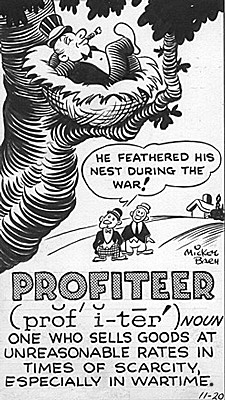-eer
(Latin: a suffix; a person who)
auctioneer
charioteer
Someone who makes it his or her business to criticize the styles used in language: "While reading through an article which was to be presented in a scientific magazine, the dictioneer found many aspects of phrasing in the composition which needed improving.”
domineer (verb), domineers; domineered; domineering
To rule tyrannically, or behave in an overbearing way: Mary's uncle domineered and tyranized his family in an arbitrary and overbearing way when he was drunk before his wife and children left him.
1. Someone who works actively for a political candidate or a party.
2. To take an active part in an election campaign; especially, as, or on behalf of, a candidate for political office.
2. To take an active part in an election campaign; especially, as, or on behalf of, a candidate for political office.
Etymology: "constructor of military engines", from Old French engigneor, from Late Latin ingeniare, from Latin ingenium, "inborn qualities, talent".
mountaineer
1. Someone who climbs mountains for sport.
2. A mountain inhabitant or someone who lives in a mountainous area.
2. A mountain inhabitant or someone who lives in a mountainous area.
1. A person or group of people who were the first to do something or that leads in developing something new.
2. A person who is one of the first from another country or region to explore or settle in a new area.
3. A foot soldier whose duties include going ahead of the main company to construct things to pave the way for them.
4. The first species of plant or animal life to begin living in a previously unoccupied site; for example, a moss beginning to grow on otherwise bare rock.
5. Etymology: from 1523, "foot soldier who prepares the way for the army", from Middle French pionnier, from Old French paonier, "foot soldier" from about the 11th century from peon; from Medieval Latin pedo, pedon-, "foot soldier"; from Latin pes-, ped-, "foot".
2. A person who is one of the first from another country or region to explore or settle in a new area.
3. A foot soldier whose duties include going ahead of the main company to construct things to pave the way for them.
4. The first species of plant or animal life to begin living in a previously unoccupied site; for example, a moss beginning to grow on otherwise bare rock.
5. Etymology: from 1523, "foot soldier who prepares the way for the army", from Middle French pionnier, from Old French paonier, "foot soldier" from about the 11th century from peon; from Medieval Latin pedo, pedon-, "foot soldier"; from Latin pes-, ped-, "foot".
privateer
1. A ship privately owned and crewed but authorized by a government during wartime to attack and capture enemy vessels.
2. The commander or one of the crew of such a ship.
3. Etymology: originally "a private man of war" (1646), from private, probably modeled on volunteer and buccaneer (someone who robs at sea or plunders the land from the sea without having a commission from any sovereign nation).
2. The commander or one of the crew of such a ship.
3. Etymology: originally "a private man of war" (1646), from private, probably modeled on volunteer and buccaneer (someone who robs at sea or plunders the land from the sea without having a commission from any sovereign nation).
A person who makes excessive monetary gains; usually, for things that are in short supply: Brandon was accused of being a profiteer because he doubled the price for ice cream during the heat wave.

© ALL rights are reserved.
Go to this Word A Day Revisited Index

Go to this Word A Day Revisited Index
so you can see more Mickey Bach illustrations.
revereneer
sonneteer
truncheoneer, truncheoner (s) (noun); truncheoneers, truncheoners
Someone who is armed with a short club that is is used by police officers: "'The local truncheoners were standing in front of the government office to keep unauthorized people away."
volunteer
1. One who willingly offers or enrolls himself/herself for military service, in contrast to those who are under obligation to do so, or who form part of a regular army or military force.
2. One who voluntarily offers his services in any capacity; one who of his own free will takes part in any enterprise or activity.
3. To offer to undertake or perform (something).
2. One who voluntarily offers his services in any capacity; one who of his own free will takes part in any enterprise or activity.
3. To offer to undertake or perform (something).
volunteering
The action of serving, or offering one’s services, as a volunteer.
<img src="/img/left_arrow_sm.gif" alt="" /> <img src="/img/right_arrow_sm.gif" alt="" />
Showing 1 page of 15 main-word entries or main-word-entry groups.
